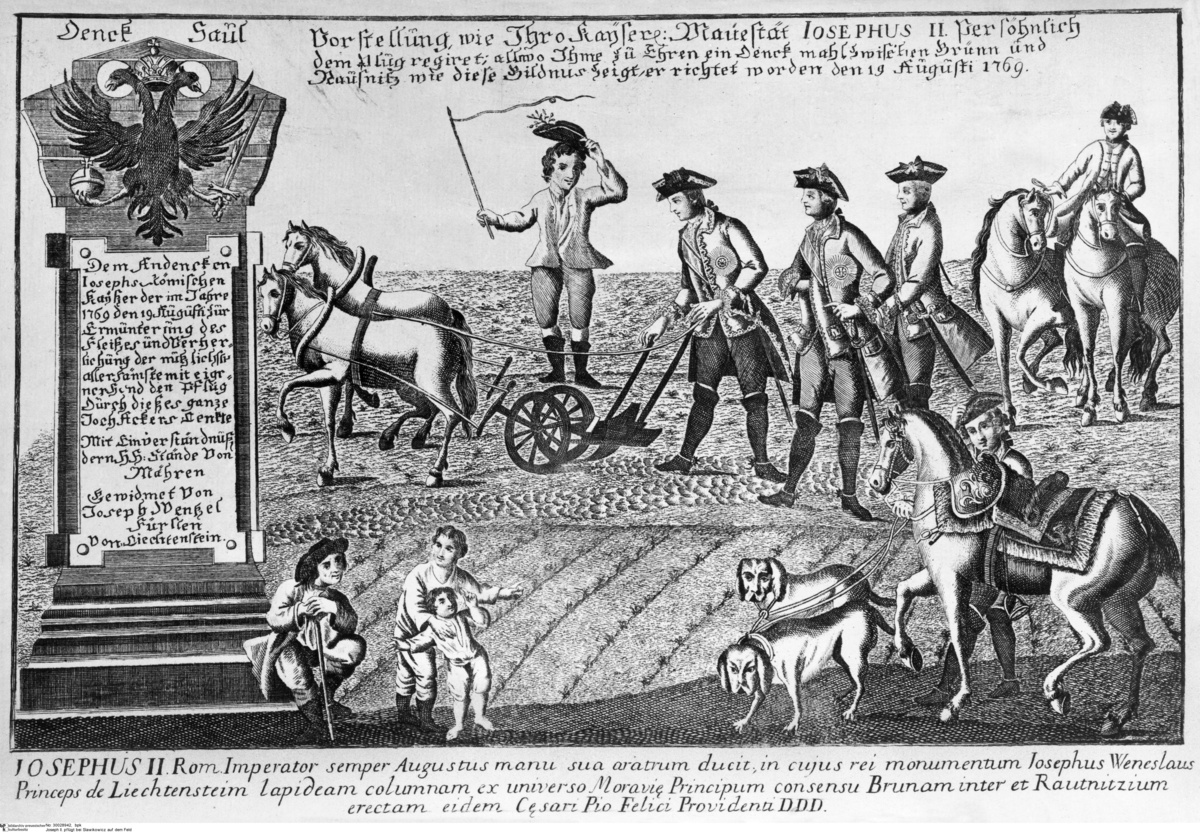Abstract
The Habsburg Emperor Joseph II (r. 1765-90) was one of the main
representatives of “enlightened absolutism.” He was responsible for many
reforms, including the abolition of juridical serfdom in 1781. (It
should be noted, however, that the introduction of this reform left
questions of land tenure and landlordly rent unresolved.) Agriculture
was among Joseph II’s major interests. He viewed it from a social
perspective but was also interested in the practical angle: for
instance, he wanted to see methods developed to increase crop yields.
This engraving depicts a visit paid by Joseph II to Bohemian farmer
Andreas Trnka on August 19, 1796. It shows that the emperor did not
shrink from personally plowing a few furrows in Trnka’s field, located
near Slavikovice (west of Brno). The caption on the left indicates that
Prince Joseph Wenzel von Liechtenstein (1696-1772) had a column built to
commemorate the emperor’s visit.
